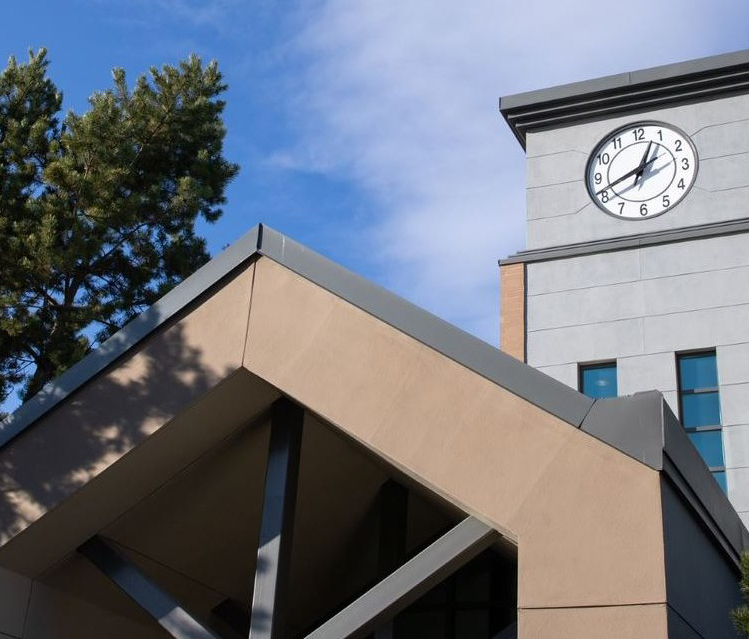President Airini announced to the TRU community the university’s intentions to lay off up to 40 people. This news came just two days after the TRU Senate met to discuss financial difficulties caused by the international student enrolment cap.
“This morning, department managers began issuing verbal notices to CUPE colleagues in positions across TRU identified for possible reduction,” Airini said in the memo. “It is expected that up to 40 people could ultimately be affected. This action is in addition to other measures already underway.”
For those present at the recent senate meeting or those who have been tracking the university’s financial issues in the wake of changing federal policies, these announcements were not out of left field.
“Previously, we had everybody experience the flat five per cent [budget cuts],” Airini said earlier in the week. “Now, we’re actually looking at where we could make some surgical interventions.”
It is undeniable that something needs to be done regarding the university’s current financial crisis. Since the 35 per cent cap on international students that was enforced in 2024, as well as the slew of additional policies that followed, TRU has stood with other post-secondary institutions nationwide in the fallout, experiencing far-reaching consequences to their financial and growth capabilities.
Since these policy changes, TRU has seen an immediate and alarming decrease in new international student enrollment, dropping 59 per cent in the 2024/2025 academic year and by another 26 per cent at the start of this semester. Per reports from the senate meeting, the predicted plateau of international student numbers currently sits at around 1,600 to 1,700, a stark contrast from its peak of 4,600 only a few years ago.
These are more than just numbers, and they have direct effects on TRU’s growth and sustainability. So far, the university has had to slash several million dollars from its budget and is still operating under deficits carried over from the previous year.
Shannon Wagner, interim provost and vice-president academic, gave a presentation to all members of the senate regarding the financial struggles facing the university.
“We’ve seen similar kinds of things happen,” she said. “We’ve seen situations during COVID, and many of you were here when that happened.”
Yet, Wagner continued, the distinction between COVID-19 and the international student crisis lies in its temporality. Where, with the pandemic, it was expected that things would eventually return to normal, no such reprieve exists with the current situation.
“With the international student issue, we don’t anticipate we’re going to return to where we once were,” Wagner told the room. “We think this is our new normal.”
Wagner laid out a four-phase plan for financial sustainability to the senate, which involved a great deal of cost-cutting.
The university has and continues to implement several strategies to squeeze out every dollar that can support its deficit. It has reduced commissions for international student agents, saving about $1.9 million. The shutdown of the West Gate dormitories brought the institution approximately $700,000 and the added credit card and convenience fees saved around the same. It also took a vacancy discount, which contributed around $6.75 million.
“Other TRU actions have included cancelling or deferring non-essential capital projects, reviewing and eliminating vacancies, eliminating discretionary spending, and conducting program and service reviews,” wrote Airini in the memo. “Across the university, we all continue to prioritize every possible option to balance the budget and minimize the impact on our colleagues. Nevertheless, due to the scale of the required change, there will be a need for even further workforce reductions.”
With a projected deficit of over $40 million by 2030, these changes alone cannot help the university plug the leaks. Hence, budget cuts and layoffs abound.
Many faculty and staff members present at the senate meeting expressed discomfort at the university’s approach to the financial issue, pointing to the uncertainty around what positions or programs will be on the chopping block.
“I think it’s great to be talking about a future vision,” came one senate member. “But in the meantime, the only thing that people are talking about is which programs are going away [and] who’s losing their jobs. So I think that I would sort of caution the administration around letting this uncertainty go on for much longer.”
As the university works towards stability in the coming years, faculty, staff, and students are feeling the pressure now more than ever. What happens next is uncertain, but hope persists that the community can work its way through it.
“We fully recognize the profound impact this has on colleagues and friends,” Airini said. “These decisions impact individuals who have provided valuable support services to TRU. The university community is grateful to our colleagues. We recognize these needed decisions are experienced personally and as a community. We are proceeding with care and respect, carefully following our agreements and policies.”

